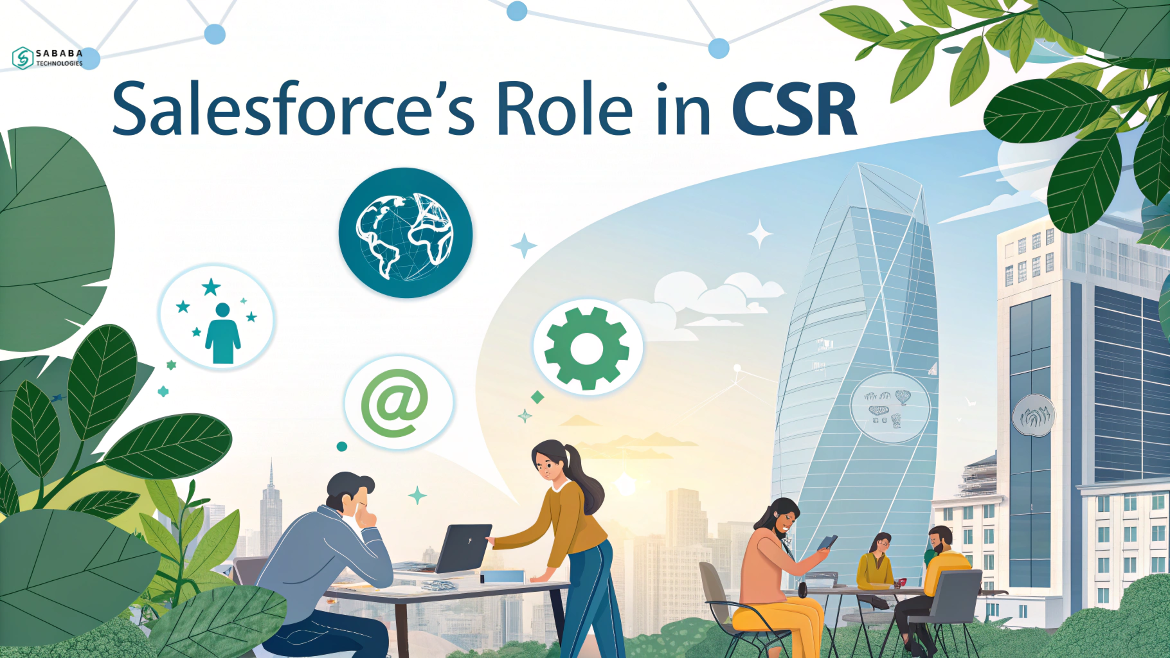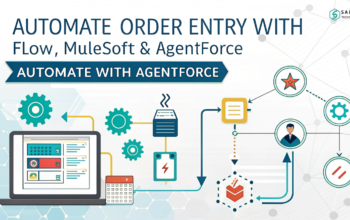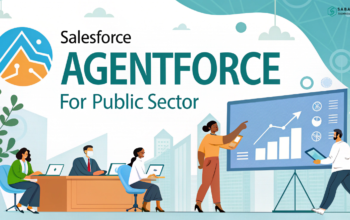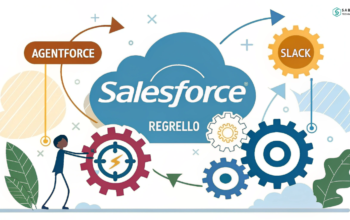Explore how Salesforce CSR tools help businesses enhance corporate responsibility through data-driven strategies and real-time insights.
Why CSR Matters More Than Ever
Corporate Social Responsibility (CSR) is no longer just a feel-good initiative — it’s a business necessity. Consumers, partners, and employees are now holding companies accountable for the way they impact society and the environment. The spotlight is firmly on brands that show integrity and commitment. That’s where Salesforce CSR comes into play.
In today’s era of transparency and ethical leadership, companies are expected to go beyond profit-making. They’re asked to contribute meaningfully to societal challenges — from climate change to social equity. And for CSR managers and business leaders, this means building a solid, data-driven foundation for action.
The Rise of Tech in CSR
Gone are the days when CSR reports lived in spreadsheets or got buried in PDFs no one reads. Technology has stepped in, and Salesforce — known primarily as a CRM — has quietly become a powerful ally in corporate responsibility efforts.
But how exactly does a customer relationship platform help with community development or sustainability tracking? The answer lies in its flexibility, real-time data insights, and integrations that make CSR measurable, reportable, and most importantly — actionable.
How Salesforce Empowers CSR Leaders
Salesforce offers more than just tools — it fosters a mindset shift for organizations willing to align their operations with their values. Here’s how:
1. Real-Time Tracking of CSR Goals
With Salesforce dashboards, CSR managers can monitor KPIs such as energy consumption, volunteer hours, and donations in real-time. Instead of quarterly check-ins, leaders gain a live pulse on progress.
You can customize fields and metrics to reflect your company’s unique CSR commitments — whether it’s carbon footprint reduction or local community outreach.
2. Enhanced Stakeholder Engagement
Corporate responsibility is a team sport. Salesforce’s platforms allow collaboration across departments and even with external stakeholders. Tools like Slack integrations and Experience Cloud help unify everyone under a common CSR strategy.
This kind of visibility encourages participation from all levels of the business — from interns to executives.
3. Data-Driven Decision Making
Relying on gut feeling or generic benchmarks doesn’t cut it anymore. Salesforce CSR tools provide clear, visual representations of where your CSR program stands — and where it can go.
These insights help guide decisions and investments that truly move the needle, whether that’s in renewable energy projects or diversity hiring practices.
4. Automating Impact Reporting
Creating CSR reports is often time-consuming, but with Salesforce, much of the work can be automated. You can pull from various data sources, build custom templates, and generate shareable reports that satisfy both internal and external stakeholders.
This is especially useful when you need to communicate impact during board meetings, investor updates, or public disclosures.
Salesforce CSR: A Real Responsibility Example
Let’s not forget — Salesforce isn’t just providing tools for CSR; it lives by them too. The company’s 1-1-1 philanthropic model — where 1% of equity, 1% of product, and 1% of employee time is donated to charitable causes — is proof of how CSR can be ingrained into business DNA.
By following its own example, Salesforce encourages other organizations to build similar value-driven ecosystems.
Integrating ESG into the Bigger Picture
While CSR and ESG (Environmental, Social, and Governance) overlap, they serve slightly different purposes. Salesforce helps bridge this gap by offering sustainability cloud services and ESG tracking capabilities.
For companies looking to strengthen their governance structures, Salesforce provides frameworks to track compliance, risk factors, and ethical standards. It becomes easier to show how your corporate responsibility actions line up with your governance policies.
Start with Salesforce CSR & Responsibility Tools
Thinking about diving in? Here’s a brief roadmap:
- Identify Your CSR Goals – Be clear on your company’s mission beyond profits.
- Choose the Right Salesforce Tools – Consider Salesforce Sustainability Cloud, Experience Cloud, and Tableau for data visualization.
- Customize Dashboards – Set up key metrics and configure alerts to stay ahead.
- Train Your Team – Make sure everyone understands how to input and interpret CSR data.
- Evaluate and Adapt – Regularly assess your CSR strategy based on data insights.
With this approach, you’re not just ticking boxes — you’re building a sustainable future with integrity.
Salesforce CSR & the Future of Corporate Responsibility
In an era where authenticity matters more than slogans, Salesforce stands out as a practical partner for businesses serious about CSR. Its tools empower leaders to act with purpose, track real outcomes, and maintain transparency with their communities.
Whether you’re a CSR manager juggling reporting duties or a business leader charting long-term impact, Salesforce CSR solutions help you bridge the gap between intention and action.
The landscape of corporate responsibility is evolving fast — but with the right platform, your company can not only keep up but lead the way.
FAQs
1. What is Salesforce CSR?
Salesforce CSR refers to the tools and strategies offered by Salesforce to help businesses manage, track, and report on their Corporate Social Responsibility initiatives effectively.
2. Can small businesses use Salesforce for CSR?
Absolutely. Salesforce scales well, offering flexible features that suit businesses of all sizes, helping them stay aligned with their CSR goals.
3. How does Salesforce support sustainability reporting?
Salesforce provides Sustainability Cloud and robust analytics to help companies track environmental metrics like carbon emissions, waste reduction, and energy usage.
4. Is Salesforce’s CSR approach customizable?
Yes. You can tailor the dashboards, KPIs, and workflows to reflect your organization’s unique goals and values related to corporate responsibility.
5. How often should CSR data be updated in Salesforce?
Ideally, updates should be made in real-time or at least weekly to ensure accurate and up-to-date impact reporting. Salesforce’s automation capabilities make this easy.
Feeling more like puzzles than solutions? That’s when Sababa steps in.
At Sababa Technologies, we’re not just consultants, we’re your tech-savvy sidekicks. Whether you’re wrestling with CRM chaos, dreaming of seamless automations, or just need a friendly expert to point you in the right direction… we’ve got your back.
Let’s turn your moments into “Aha, that’s genius!”
Chat with our team or shoot us a note at support@sababatechnologies.com. No robots, no jargon, No sales pitches —just real humans, smart solutions and high-fives.
P.S. First coffee’s on us if you mention this blog post!



